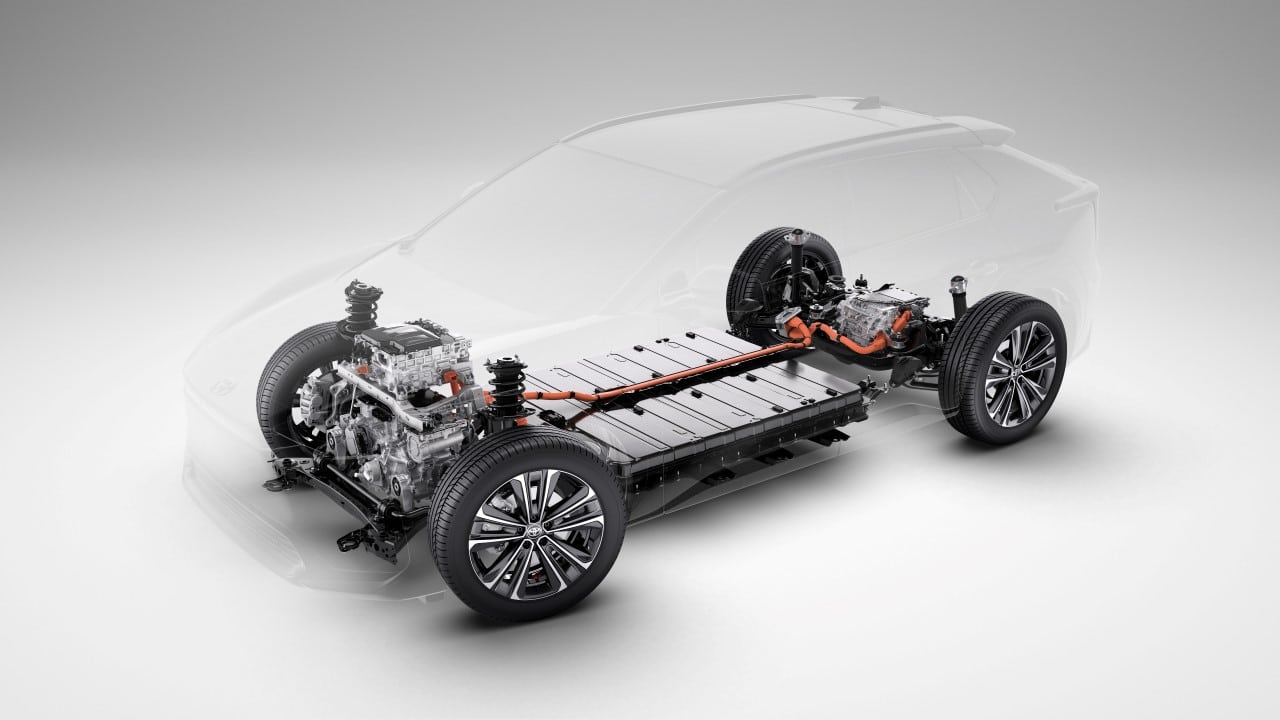Toyota will become the sole owner of Primearth EV Energy (PEVE), the manufacturer of batteries for hybrid cars. The company was founded in 1996 as part of a strategic partnership between Toyota and Panasonic Holdings Corporation. As the market leader in hybrids, Toyota is taking full control of the company to expand its product portfolio and increase its own battery production capabilities.
In line with Toyota’s multi-path powertrain development strategy, Primearth, which has so far focused on supplying batteries for hybrids, will launch new production lines for batteries for electric cars and plug-in hybrids. Mass production of batteries for various types of electrified vehicles will allow Toyota to flexibly respond to the growing market demand and customer preferences.
As the largest car manufacturer in the world, Toyota sells millions of electrified vehicles each year, effectively lowering global transport emissions. New investments will reduce costs and increase the scale of production of one of the most important components of electrified drives. This will make Toyota’s range of low- and zero-emission models even more competitive in the market.
Strategic investments in powertrain electrification
By 2030, Toyota will globally invest $70 billion (8 trillion yen) in the development and production of electrified cars. Half of this amount has been allocated for batteries and electric vehicles. The result of the new strategy is, among other things, the expansion of battery production capabilities in Japan and the United States, and progress in research and development of new battery technologies. In the second half of the decade, Toyota plans to halve the cost of electric vehicle battery production, and to increase their production to 200 gigawatt-hours by 2030.
By 2030, the company aims to bring to market four new technologies with better charging parameters and higher energy density. In 2026, a new generation of electric car batteries will debut, providing a range of over 800 km. Plans also include cheaper and more efficient bipolar lithium-iron-phosphate batteries, which will go into popular models and allow for travel of over 600 km. The next step will be the start of production of bipolar lithium-ion batteries with a range of over 1000 km. Toyota is also conducting advanced research on a completely new solid-state battery technology, which is set to debut on the market in 2027. According to current estimates, it will provide a range of up to 1200 km, and the charging time will be reduced to 10 minutes.
Multi-path powertrain development strategy
Toyota’s investment in new battery production lines, which will be established in Primearth’s plants, is part of the goal of achieving climate neutrality by 2050 without limiting people’s mobility. Toyota wants to popularize low- and zero-emission vehicles worldwide as quickly as possible, so its range of models is based on all types of electrified drivetrains. This allows the brand to adapt its offer to the specifics of each market, customer needs, and available infrastructure. As a result, millions of customers around the world can replace conventional petrol cars with low-emission vehicles that best meet their needs.
The development of several different powertrain technologies also aims to optimize the use of limited resources, such as lithium, cobalt, or rare earth metals. Toyota considers hybrid, electric, and hydrogen drives as complementary solutions, which used in parallel will facilitate the decarbonization of various sectors of transport. At the same time, the company is conducting research on climate-neutral fuels, such as bioethanol, synthetic fuels or hydrogen, and engines adapted to them.
